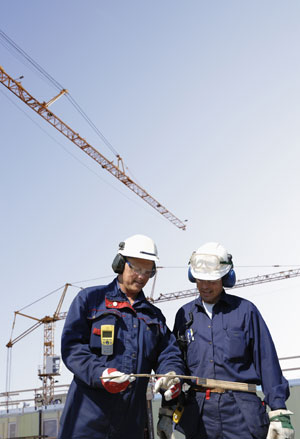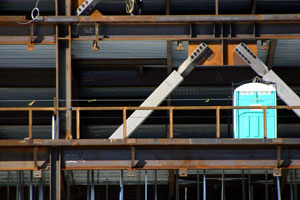CONSTRUCTION MANAGEMENT

PRO2 has experience in virtually all types of construction with a knowledge of and access to permitting, code requirements, licensing, and other location specific conditions and requirements. We have the expertise necessary to coordinate document control, oversee construction, maintain schedule, ensure quality compliance, control costs, and minimize claims all with the specific interests and objectives of the Client in mind for Projects virtually anywhere in the country.
The following summarizes our Construction Management and Owner Representative Program.
- PROJECT SELECTION ANALYSIS
- DESIGN AND PRE-CONSTRUCTION PHASE
- BID AND AWARD PHASE
- CONSTRUCTION PHASE
- PROJECT CLOSE-OUT PHASE



Project Selection Analysis
For a successful Project, due diligence study of the local market and feasibility of the Project must be implemented prior to making significant financial commitments. Each location has eccentricities that if neglected or ignored can hinder or destroy the success of a Project. PRO2 has the capacity and experience to provide such analysis.
Market Conditions Analysis:
Analyze market potential.
Conduct a demographic and trade area study and analysis.
Identify and analyze potential competition and review and analyze desired product.
Analyze drive and travel time.
Determine local work force and Trade Contractor conditions and availability.
Report on findings including any possible deficiencies and recommendations for corrective action.
Local Requirements Analysis:
Research and identify governmental requirements as they relate to the Project.
Research and identify contracting licensing requirements and procedures.
Research and identify local lien law requirements and procedures.
Report on findings including any possible deficiencies and recommendations for corrective action.
Site Evaluation and Analysis:
Visit the site to research, review, and analyze the physical characteristics including access and staging restraints, previous site use, and any visible conditions.
Evaluate zoning, codes, and land use, and any encumbrances.
Evaluate utility availability and locations.
Report on findings including any possible deficiencies and recommendations for corrective action.
Design & Pre-Construction Phase
PRO2 ‘s Construction Management System incorporates the Project Objectives; the Project’s scope, quality standards, budget, and schedule. The Design Phase must be managed well in order to ensure timeliness, cost effectiveness, and efficiency. Value Engineering must be implemented throughout the Design Phase. True Value Engineering keeps Project Objectives in mind while identifying potential savings. Scheduling is important during this process. We use the Critical Path Method (CPM) of scheduling with a clear understanding of both manual and computerized systems.
Quality assurance should also be established during this phase and carried through construction:
Design Coordination, Monitoring, and Review:
- Act as the Design Team leader and keep the Design Team focused on the Project Objectives.
- Assist the Owner and the Design Team in defining the Project Objectives.
- Assist the Owner and the Design Team in developing/implementing a Quality Control Plan consisting of quality standards and performance criteria to be followed throughout construction of the Project.
- Conduct design review and progress meetings with the Design Team.
- Establish design activity schedules and monitor the progress of the design.
- Assist in selecting and coordinate the services of a surveyor, testing laboratory and special consultants.
Document Review and Analysis:
- Review drawings and specifications, bid documents, consultant reports, and other pertinent documents for content, clarity, overlap, completeness, adequacy, accuracy, and potential claim issues.
- Review documents for constructability issues, estimating, and scheduling impact
- Critique and, if necessary, clarify the Contract Documents.
- Develop supplementary language dealing with avoidance of potential claims and/or minimizing risk.
Project Constructability Analysis:
- Determine the most effective and efficient means to construct the Project.
- Identify potential construction logistics problems, such as site access, staging, and temporary facilities.
- Analyze things such as availability of equipment, scaffolding hoisting, and access systems and their impact on other trades, sequencing of the work, and potential tolerance and installation problems, etc.
- Provide practical solutions to potential problems and conflicts that these may identify.
Value Engineering:
- Analyze the design for cost-effectiveness identifying potential savings, added value, or increased quality.
- Evaluate alternative designs, materials, systems, equipment, etc. for both time and cost savings.
- Evaluate availability of materials and labor, installation requirements, and any potential schedule issues.
- Provide life cycle cost analyses for major building systems comparing initial costs to life cycle costs.
- Determine costs and priorities of Value Engineering ideas considering Project Objectives.
- Provide alternatives for review and analysis. Make recommendations to the Owner and the Design Team.
Budget and Estimating:
- Prepare conceptual cost estimates from conceptual and/or preliminary project plans and documents.
- Price individual assemblies/phases of the Project to offer alternate materials and methods.
- Prepare preliminary Budget including pre-construction, construction, soft costs, and Owner’s intentions.
- Revise and/or update quantities and the Project Budget estimate as the design evolves.
- Prepare detailed quantity take-off of completed plans.
- Meet with Design Team to discuss variances, discrepancies, and concerns.
Scheduling:
- Prepare Project Schedule including Design Phase activities.
- Conduct Pre-Construction meetings with key people including Trade Contractors to refine the Schedule.
- Analyze Project Schedule to ensure balance of manpower and resource usage and adjust accordingly.
- Identify problems and implement assertive but realistic ways to avoid and/or correct them.
- Provide Schedule Updates to the Project Team.
Bid and Award Phase
PRO2 ‘s principles and associates have worked with some of the nation’s largest construction companies in estimating, bidding and buy-out, and contract preparation, in “hard bid” and negotiated contract situations—representing Owners, general/prime contractors, and subcontractors. Our well-rounded knowledge and expertise help Owner’s receive the best possible price while meeting the Project Objectives.
Bid Document Preparation:
In conjunction with or in lieu of Bid Documents prepared by the Design Team, we can review or provide the necessary documentation for soliciting bids and issuing contracts:
- Determine the best contract type given the Project specifics, Owner’s resources, expertise, and capacity.
- Prepare a geographically specific bidders list.
- Proved Bidder Pre-Qualification Requirements.
- Prepare Invitations to Bid.
- Prepare detailed Scopes of Work that comply with the Quality Control Plan to be included in the contracts.
- Prepare standard format Schedules of Value to be included in the contracts and used for progress payments.
Pre-Bid Conference:
- Conduct a pre-bid conference with appropriate contractors, to ensure an efficient bidding process.
- Discuss and clarify conditions of the contract and specifics about the Project.
- Clarify requirements, scope, and required breakdowns to ensure a fair evaluation of bids.
- Ensure that contractors comply with pre-qualification requirements and the Quality Control Plan.
- Answer any questions that may arise.



